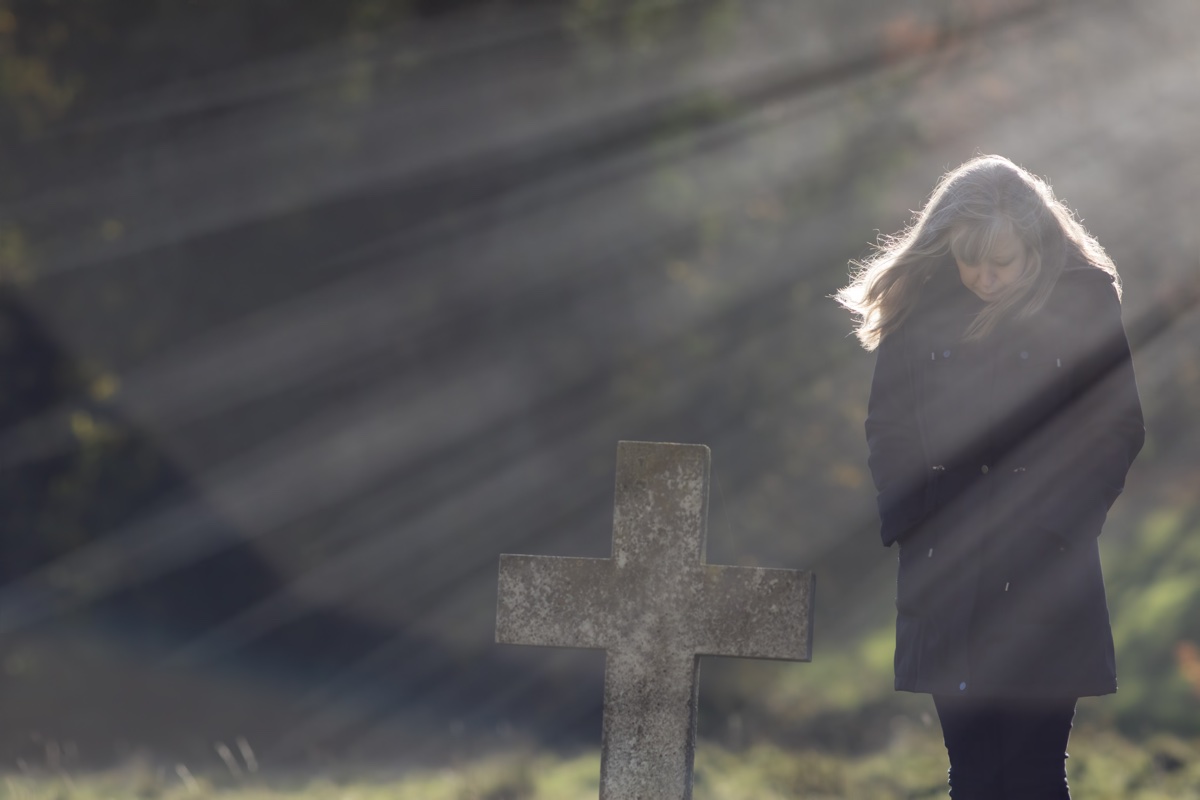Grief can be described as the deep mental anguish experienced after a significant loss, usually the death of a beloved person. Let’s look at this definition carefully. First, grief is emotional agony. It’s like being in extreme physical pain except it is experienced mentally and emotionally. Notice that it is different than sadness. We will experience sadness when we grieve, but not all sadness is due to grief. Sadness is a feeling that tends to fluctuate based on our circumstances and mood. Second, it shows us that grief is experienced after loss. We do not grieve things or people who are not significant to us. We might be sad that our friend’s grandmother died, but it will not impact us in the same way as if our own beloved grandmother died. Third, it reminds us that we usually think of grief involving the death of a person, but we can grieve other things as well…loss of a job, relationship, independence, dreams, etc.
Grief is a normal and healthy response to loss. We might have grown up with the idea that grieving is abnormal and unhealthy (real men don’t cry), but this just isn’t true. God designed us to love and care deeply, and the response to losing those we love is grief. Not only is it normal, but it’s also healthy. When we refuse to grieve, we actually cause ourselves harm. It’s like a balloon. We can only stuff so much air into a balloon before it pops. We are like that with our emotions. We can only “stuff” our feelings so much before we pop, too. We might explode in anger, experience depression, or even experience physical symptoms such as stomach problems or headaches. Also, grief, unresolved, can build upon itself when we experience the next grief. When we choose to sweep things under the rug, we are just causing ourselves more work and agony the next time we experience loss.
When we grieve, we not only grieve the loss of the person, but we mourn the loss of the roles, dreams, nuances, and routines that went along with our relationship with them. These are called secondary losses. Roles include parts the loved one played that will need to possibly be passed onto others. Some examples of this are the “fun one”, tech guy, party planner, banker, cook, etc. We experience a loss of dreams and expectations such as the deceased person now not being able to be there when grandchildren are born. Familiar nuances include the way a person smells, and physical touch such as sleeping in the same bed, etc. There are also many changes in routine when we lose someone. This might include having Thanksgiving at someone else’s house, changing from a couple’s Sunday school class to a women’s or men’s class, etc.
Everyone grieves differently. This is based on many factors…personality, type of death, our relationship with them, support systems, etc. For instance, an individual would normally grieve the peaceful passing of their 90-year-old grandmother differently than their child suddenly being killed in a car accident. The type of death and circumstances surrounding it often have a major impact. Sometimes a good relationship with the deceased makes their death harder, but a rocky, estranged relationship can also make grieving difficult. We often experience guilt as a part of grieving. We wish we could have spent more time with them, told them we loved them, had a second opinion from another doctor, etc. Physical symptoms, loneliness and isolation, and longing for what was lost are also common symptoms.
One common grief model puts typical grieving into five stages: denial, anger, bargaining, depression, and acceptance. Denial usually happens when we first learn about the loss. It can include shock, numbness, confusion, and fear. Our bodies and minds cannot process the news we have just received, and it is hard to believe what has happened. Anger can be directed at many different people. We might be angry with ourselves for not doing something differently. We might be angry with a doctor or the driver who caused a car accident. We might even be angry with God for allowing this terrible thing to happen. Bargaining takes place when we have “if only” thinking. “If only we didn’t go on vacation.” “If only we had seen the doctor sooner.” We try to use magical thinking to try to undo something that happened. Depression experienced while grieving can take many forms. Of course, we feel sad, but it usually goes deeper than that. We might experience physical symptoms, not being able to sleep, having trouble getting out of bed, isolating ourselves from others, feeling hopeless about the future, or having difficulty concentrating or making decisions. Acceptance is the final stage of grief. While we never truly get over the loss, we learn to live with it. It is a sense of finality.
Grieving is one of the hardest events we can experience in life. There isn’t a pill we can take or a procedure we can do to hurry it up. We have to give ourselves time and permission to grieve. If you feel you are struggling with your grief, talk to a counselor or grief group to walk with you through this difficult time.

